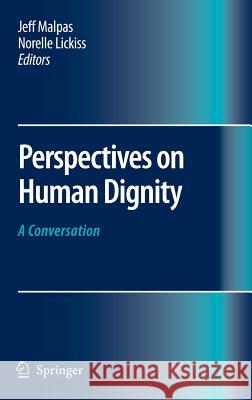Perspectives on Human Dignity: A Conversation » książka
Perspectives on Human Dignity: A Conversation
ISBN-13: 9781402062803 / Angielski / Twarda / 2007 / 240 str.
The Honourable William Cox AC RFD ED, Governor of Tasmania The issue of human dignity was given a new impetus at the end of the Second World War as a reaction to the horrors of the Jewish holocaust and other Nazi atrocities. The immediate consequence was its recognition in such international documents as the Charter of the United Nations (1945) and the Universal Declaration of Human Rights (1948). Several new national constitutions likewise gave it recognition. Though undefined, it was seen as a supreme value possessed by all human beings and one giving rise to rights and obligations in and upon them. In recent decades the existence of these rights has led to acceptance of procedures whereby they may be enforced, and to the overthrow of such doctrines constraining them as that of Sovereign Immunity. In domestic law, too, there have been ramifications, while advances in medical science have raised ethical issues in respect of genetics, human cloning, and the termination or officious prolongation of life. It was timely then that consideration should be given to human dignity by a wide range of researchers and practitioners in disciplines such as law, philosophy, history, political science, medicine, the arts, and theology at the Colloquium in Hobart in 2004 organized by the editors of this volume.











